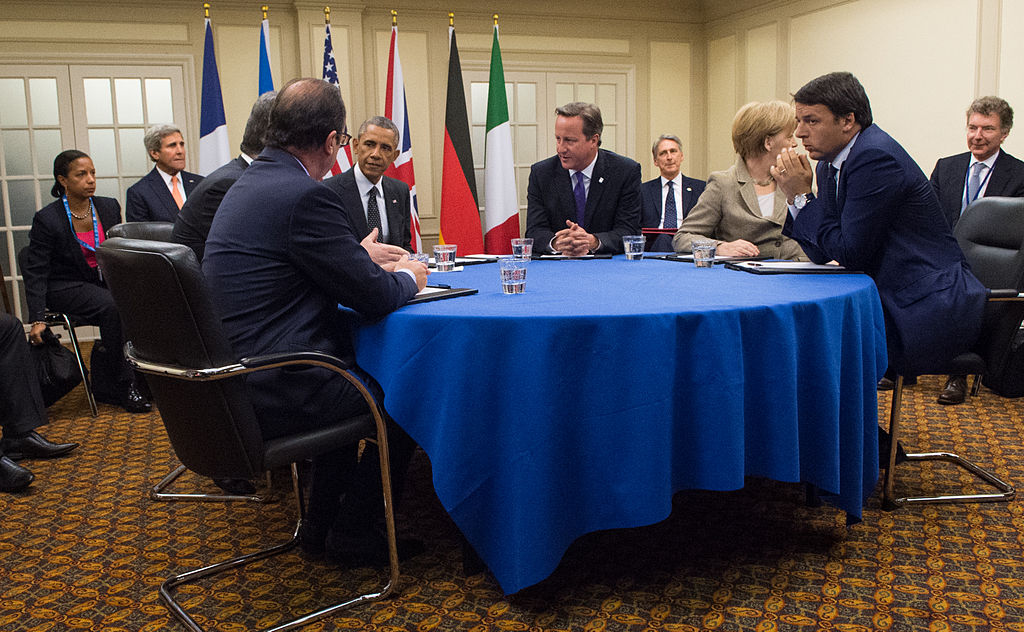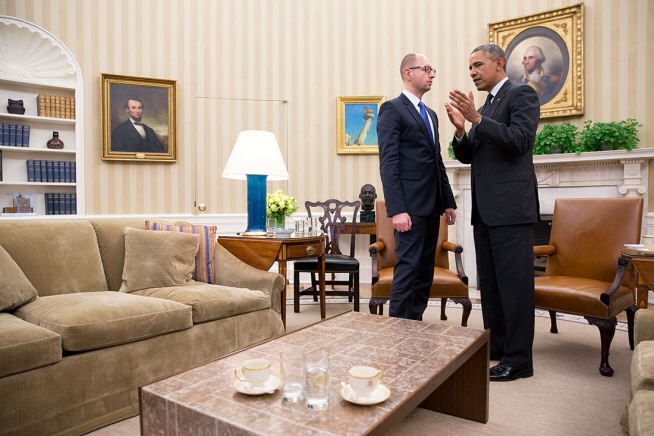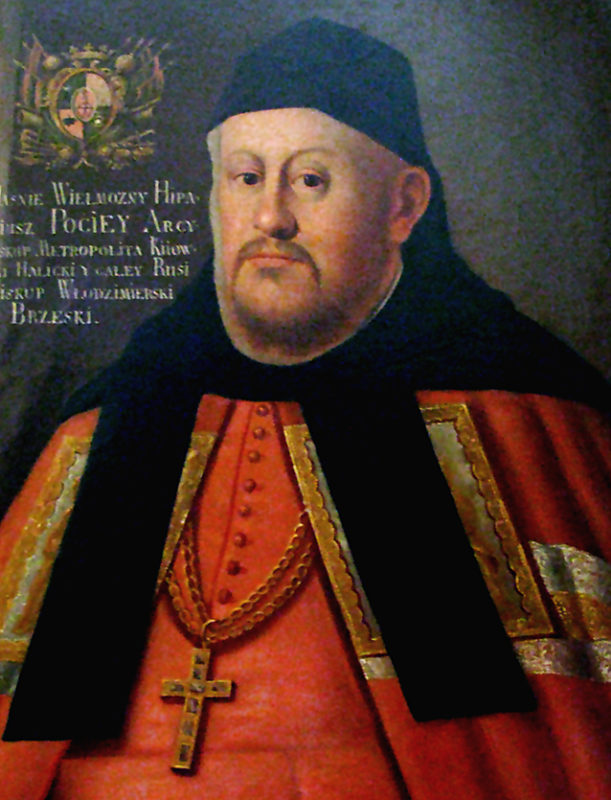Europe turned out to be involved “head over ears”, both directly and indirectly, in two major crises in 2014. In the Near East where it participates in the war against U.S.-created ISIL (Organization banned in Russia), bearing corresponding costs. And in Ukraine, where Nazis came to power after a U.S.-supported coup d’etat and where the depth of involvement of Europe and the costs (political, economic, social) it pays are even higher and keep increasing.
We have discussed earlier how the leading elite groups of United States construct their renewed concept of global domination and what mechanisms are being used to secure the involvement of the general public and the elites of many countries into supporting and realizing American goals and interests.
One may, apparently, have doubts: perhaps I made all of this up. What is the evidence that the United States do this “suppression by involvement” at all? What serious American politicians or experts talk about this? Where is the proof?
I provide the proof in this article. And I apologize in advance for extensive quoting.
Does the American “suppression by involvement” exist?
As I have already showed in the first part of the article, USA started talking about the necessity to regularly and firmly involve allies into American global projects in 1980s and 1990s. However, those weren’t the highest ranking politicians and experts who spoke about this back then. Besides, they didn’t speak about it as of a reality, but as of a desired transformation of American foreign policy strategy.
Now this is being openly discussed by top figures and they talk about it as of a political practice. Including the President of the United States.
Here is a fragment of Barack Obama’s commencement address at West Point Military Academy, May 29, 2014:
“…when issues of global concern do not pose a direct threat to the United States… we should not go it alone. Instead, we must mobilize allies and partners to take collective action… diplomacy and development, sanctions and isolation, appeals to international law, and, if just, necessary and effective, multilateral military action
… Our ability to shape world opinion helped isolate Russia right away. Because of American leadership… Europe and the G-7 joined with us to impose sanctions, NATO reinforced our commitment to Eastern European allies, the I.M.F. is helping to stabilize Ukraine’s economy… And this mobilization of world opinion and international institutions served as a counterweight to Russian propaganda and Russian troops on the border and armed militias in ski masks.
…we form alliances, not only with governments, but also with ordinary people. For unlike other nations, America is not afraid of individual empowerment. We are strengthened by it. We’re strengthened by civil society. We’re strengthened by a free press…“
As we can see, everything here is stated clearly: the involvement of allies, the mechanism of involvement by “shaping the opinion of the civil society by free press”, the justification of American intervention with the need to bring “justice”, sanctions as the instrument of pressure of everyone “involved” against the “common enemy”.
Victoria Nuland, the Assistant Secretary of State at the United States State Department, made a speech at the “U.S.-Central Europe Strategy Forum” on October 2, 2014. I want to emphasize that the main reason for this “dialogue” was the increasing outrage of a part of elites and general public of these countries. The outrage which was caused by the costs the countries suffered after implementing U.S.-dictated sanctions against Russia.
“…Today we must maintain solidarity with Ukraine and unity within the Transatlantic community. Implementing sanctions isn’t easy and many countries are paying a steep price. <…> But history shows that the cost of inaction and disunity in the face of a determined aggressor will be higher. The history of Central Europe itself teaches us that. So when leaders are tempted to make statements that tear at the fabric of our resolve, I would ask them to remember their own national history…“
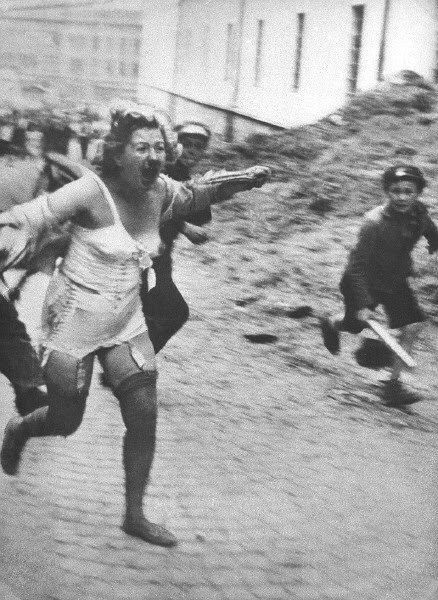
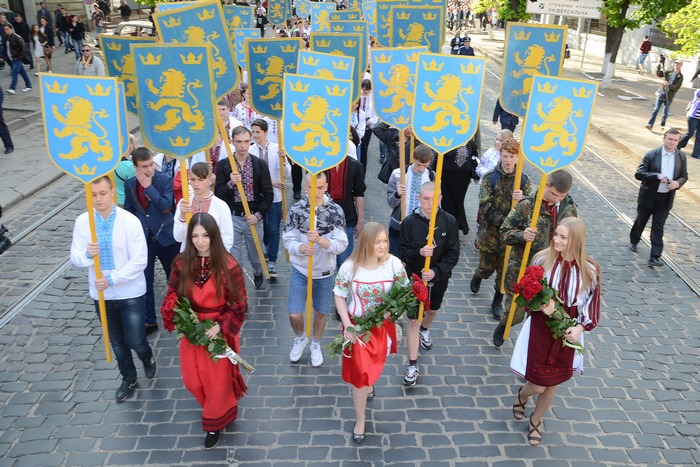
Next Nuland explicitly warns those who don’t want to get “involved” into American politics about possible consequences: “And as you stand with Ukraine, we stand with you… The United States’ commitment to NATO’s Article 5 is unwavering. As President Obama said at Tallinn, ‘we will defend our NATO Allies, and that means every Ally.’“
On October 3, 2014, the Vice President of the United States, Joseph Byden, quite explicitly made similar statements. Delivering an address to the professors and students of Harvard Kennedy School, Biden said that EU countries implemented sanctions against Russia because they were pressed to do so by the United States: “It is true they did not want to do that. But again, it was America’s leadership and the President of the United States insisting, oft times almost having to embarrass Europe to stand up and take economic hits to impose costs.“
Back then, in Harvard, Biden admitted that the “Islamic State” (Organization banned in Russia) which Obama had just declared to be one of the primary global threats was born in the war against Bashar Assad initiated in Syria by the United States.
However, Biden instantly emphasized that America did not anticipate that it is forming the core of the future terrorist “caliphate” by gathering mercenaries to fight Assad. Biden accused “indiscriminate” allies from the U.S.-led coalition of this: “The Turks were great friends, the Saudis… etc. But… they were so determined to take down Assad… They poured hundreds of millions of dollars and tens thousands of tons of weapons into anyone who would fight against Assad, except that the people who were being supplied were “Al-Nusra” and “Al-Qaeda” [Organization banned in Russia – Editor] and the extremist elements of jihadis coming from other parts of the world…“
However, Biden added, since both the aforementioned militants and weaponry are in the hands of the “Islamic State” (Organization banned in Russia), the allies of the United States are once again “involved”. They are now “repenting” for their sins by participating in the bombing of “Islamic State” (Organization banned in Russia) in Syria and Iraq.
Other “major” politicians and analysts have joined the discussion on involving allies in American interests (and the scale of the costs for those involved).
On October 19, 2014, the Chairman of the Senate Committee on Armed Services, a member of the Democratic Party Carl Levin and the senior United States senator James Inhofe, a member of the Republican Party, have urged the U.S. President and the government to immediately arm Ukraine with modern “defense weapons” in a Washington Post article. They didn’t explain what defensive weapons differ from weapons of offense, though.
They did explain, on other hand, why “now is the time to add defensive military aid, including weapons, to our support of Ukraine“: supposedly, Russia has become a military threat to Europe and the whole world. Now the United States and its allies must respond, because “supporting Ukraine’s desire for peace, freedom, territorial integrity and democracy supports values Americans hold dear.“
On October 21, 2014, Zbigniew Brzezinski gave an interview to a Ukrainian TV channel “Inter”. He had first emphasized that the Ukrainian “path towards Europe” has no alternatives and described the opportunities which await the country in the end:
“…On this critical moment Ukraine must prove that it decided to become a part of the European world.” If it will succeed, it will become a prospering nation, while Russia will either also “become a part of Europe“, or will be a “devastated satellite state of China“.
But then Brzezinski warned that if Ukraine will achieve all of this, it will not happen soon and Ukraine will have to pay a lot for this: “You must accept the fact that in the next 10 years you will have to sacrifice a lot to become a part of Europe. …Don’t expect the West to fight for you… You must have the desire to do everything necessary to protect your freedom… And then, one way or another, the West will support you, and the situation will start getting better.“
On October 23, 2014, George Soros published a long article in The New York Review of Books and the French Le Monde at the same time, in which he demanded Europe to get “militarily” involved into the crisis in Ukraine — again, Europe was supposed to be the one to bear the costs. Soros wrote:
“Europe is facing a challenge from Russia to its very existence. Neither the European leaders nor their citizens are fully aware of this challenge… preserving the independence of Ukraine should take precedence… A victorious Russia would become much more influential within the EU and pose a potent threat to the Baltic states with their large ethnic Russian populations. Instead of supporting Ukraine, NATO would have to defend itself on its own soil… a direct military confrontation with Russia.
…It is high time for the members of the European Union to wake up and behave as countries indirectly at war. They are better off helping Ukraine to defend itself than having to fight for themselves… All available resources ought to be put to work in the war effort even if that involves running up budget deficits.
…[IMF] should provide an immediate cash injection of at least $20 billion, with a promise of more when needed. Ukraine’s partners should provide additional financing conditional on implementation of the IMF-supported program, at their own risk, in line with standard practice…”
On October 24, 2014, the Principal Deputy Assistant Secretary in the Bureau of European and Eurasian Affairs at the United States Department of State said in the interview he gave to the Japanese newspaper “Nikkei” that the United States intend to impact the Asian countries in order to urge these countries to join the economic pressure against Russia due to the events in Ukraine.
I refer only to a small part of significant publications the authors of which demand various U.S. allies to participate in the realization of U.S.-declared “just and good goals”. To be more precise — to “punish Russia”, “restore international law”, “save European security”, “fight global terrorism”, etc.
And it must be said that allies are involved into realizing these “just and good goals” despite economic, political, social costs they will have to pay. These countries also pay with “cancelling” their own goals and interests for being involved.
What is the result of American “suppression by involvement”
for its allies and enemies so far
It is hard not to admit that two primary “objects” constructed by USA for involving allies were quite reasonably and effectively strategically chosen.
Ukraine, extremely radicalized by U.S.-orchestrated Nazi coup d’etat, became such “object of involvement” on the European front.
The caliphatist “Islamic State” (Organization banned in Russia) international, formed, trained and armed with the most active participation of the United States and its allies is such an “object of involvement” on the Near Eastern front.
We must admit that the U.S.-planned “involvement” happened and is growing, and has already led to quite significant weakening, meaning, suppression, of everyone “involved”.
With the continuing global economic crisis, Europe turned out to be involved in other crises “head over ears”, both directly and indirectly, in 2014. Both in the Near East where it participates in the war against ISIL (Organization banned in Russia), bearing corresponding costs. And in Ukraine, where the depth of involvement and the costs (political, economic, social) are even higher and keep increasing.
It becomes more and more evident for Europe what and why did the USA get it involved in. And it carefully resists further “involvement”.
Many European allies of the United States literally react with panic when it comes to the prospect of current bombing of ISIL (Organization banned in Russia) turning into a “boots on the ground” operation in Iraq and Syria. But the voices of those American politicians who claim that the problem of the newborn terrorist “caliphate” cannot be solved without “boots on the ground” of primary NATO members (in other words, Europeans) are getting louder.
Europe is trying to “extinguish” the Ukrainian crisis more and more explicitly, including by trying to secure a steady ceasefire in the “ATO zone” (Kiev junta refers to the war in Donbass as “ATO”, or “Anti-terrorist operation” – Editor). Europe also tries to solve the gas conflict, trying to convince Kiev to pay debts to “Gazprom” and even by expressing the readiness to “chip in” $1-2 billion in order to guarantee gas transit from Russia for itself.
USA, on the contrary, escalate both the conflict in Donbass and the gas conflict by blessing Kiev to continue the war and “advising” Kiev to be as stubborn as possible about the gas question: let Europe either pay for everything, or freeze to death during the winter (by Ukrainian Prime Minister Yatsenyuk’s order, Ukraine once again stopped purchasing Russian gas on November 25, 2015 – Editor). The U.S.-controlled global media will take care of explaining to the citizens of Western countries, and the rest of the world, that Russia is the one responsible for both the victims of the war and for the people in Ukraine and Europe who are freezing to death.
Europe doesn’t want to get involved in the arms race of the “renewed NATO” because it understands that the economies of EU countries are snapping into yet another “recession spin” even without these military expenses (French President Hollande promised to increase military spending after the Paris attacks. It is also already “involved” in bombing ISIL (Organization banned in Russia) – Editor). Europe also understands that it will have to arm itself with the American military equipment, not European — which means that Europe will have to pay to American corporations for participating in this arms race. At the same time, United States insist: allocate at least 2% of your GDP to military expenses, as per NATO agreement. Oh, and by the way, share some military hardware with Ukraine: after all, you are already involved and won’t get out…
In addition, USA explain to Europe that it is not America’s, but Europe’s first task to punish Russia (I mean, “to save democracy and common values of complying with the international principles of the UN”) by implementing sanctions against Russia and by supporting Ukraine. Because it is Europe that signed the Association Agreement with Ukraine and assumed political and economic commitments and risks. Which means it must pay and will pay. It will pay to Ukraine and to its own economies for sanctions.
Near East and Africa are also involved
The “Arab Spring” first turned into the war against Libya, then into the war against Syria, and now into a war for/against the new caliphate. Obama’s “kind of indecisiveness” when it comes to supporting a joint massive “boots on the ground” operation against ISIL (Organization banned in Russia) can be pretty much interpreted as the readiness to allow the caliphate to be eventually established in Baghdad. After which it will launch its full-scale expansion on all directions publicly declared by the “caliphate”.
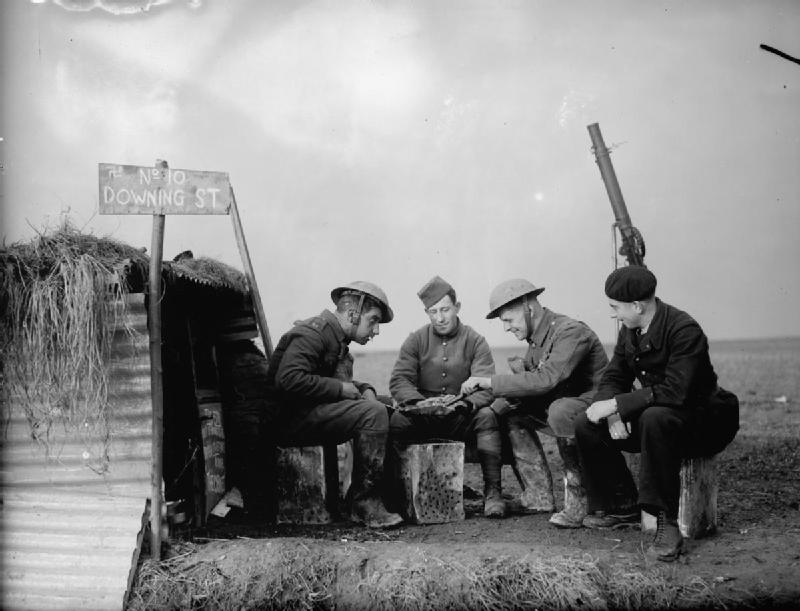
That is, north — to Turkey and Transcaucasia, north-east — to Central Asia and Caspian Sea-Volga part of Russia, east — to India and China through Iran and Pakistan, south — to Arabia, and south-west — to Maghreb, west — to the Balkans and up to Spain. As we can see, this will lead to setting Eurasia and Africa on fire from all possible sides.
The tongues of the military-terrorist flames of the “Libyan fire” have already set almost a third of the continent ablaze, as we have foretold in the book “Political Tsunami” (Libya, after being weakened by NATO bombings in 2011, without a real government ever since, is becoming yet another ISIL (Organization banned in Russia) target, with large territories already in the terrorists’ hands as of December 3, 2015 – Editor). In addition to that, the outbreak of Ebola gave the United States a grounded pretext to dramatically increase its military presence (“sanitary-antiepidemic”, of course) in Central and West Africa — of course, for the sole purpose of fighting this terrifying disease.
United States Africa Command (AFRICOM) had already sent there additional 5000 troops, official intelligence personnel and many other “plainclothes specialists”. These troops and this personnel are already creating the military-political “footholds” which are necessary for the U.S. in key countries of the region. First and foremost these “footholds” are required to prevent Chinese economic expansion which became way too quick and diversified in the past years in Africa.
Russia is involved more than anybody else in the world
Russia is involved in a quite costly “sanctions war” against USA and its allies on the financial, trade, technological and other directions.
Russia is involved into the need to rapidly (meaning, excessively costly) solve complicated systematic tasks of overcoming the consequences of sanctions, including the task of diverse (financial, product, technological etc.) import substitution
Russia is involved in the political, military and economic costs of state reorganization and modernization of Crimea and, possibly in the future, of Donbass. And these costs are large. To be more specific, it is obvious that economic rebuilding and comprehensive economic integration of Crimea will take a long time and will require very large resources, since Crimea is tied to Ukraine in terms of infrastructure and separated from the rest of the Russia in terms of land communications.
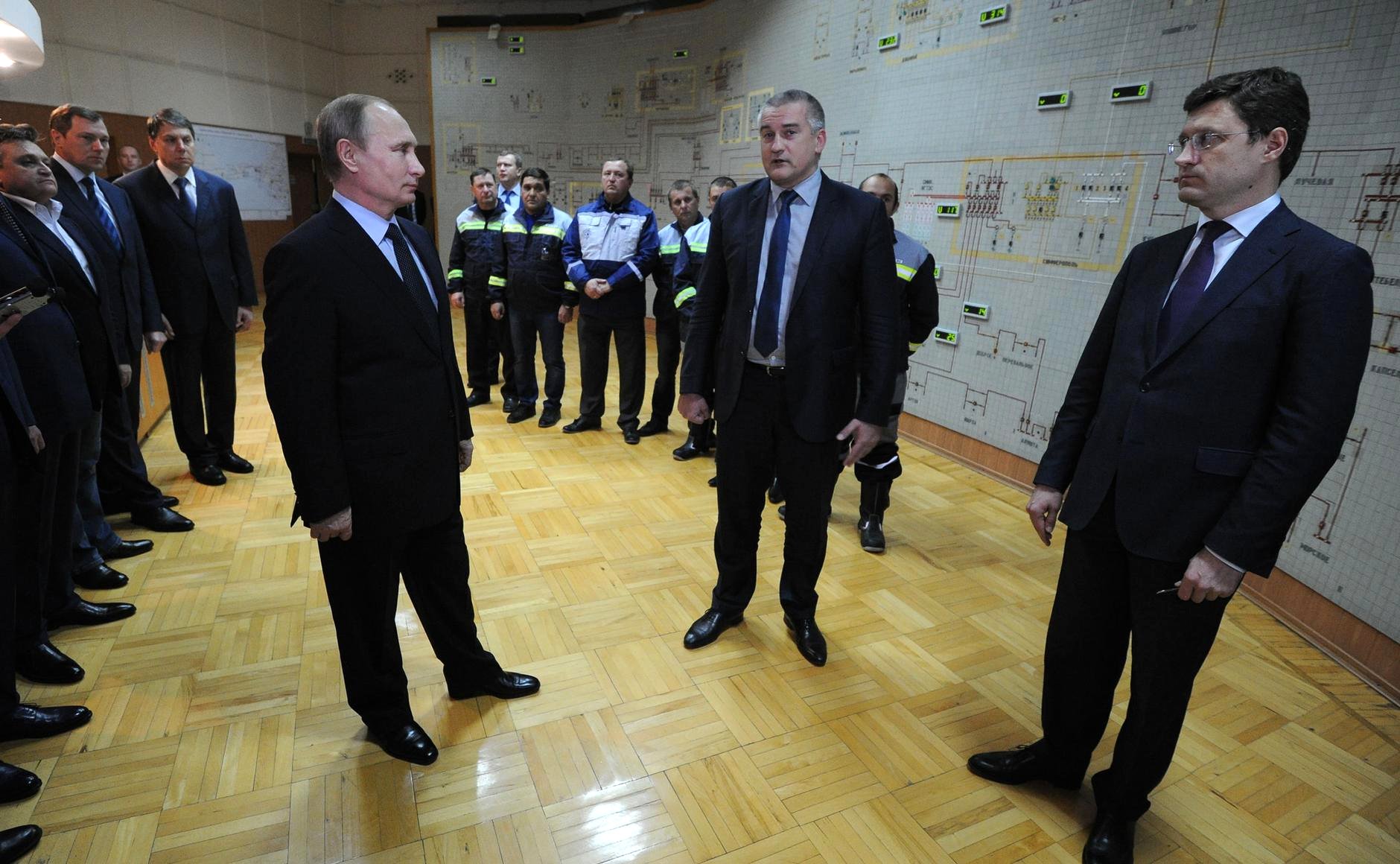
Finally, Russia is involved in the sharply escalated domestic elite conflict. Multiple growing conflicts between the part of our elite which made the decision to hold out during the new upcoming “Cold War” — and the other part of the elite which wants to avoid this Cold War at the cost of surrender to the Americans and their allies anything they want.
What did the USA achieve during realization of
their concept of “suppression by involvement” so far?
Let’s start with American “achievements on the European direction“.
First of all, Zbigniew Brzezinski old dream of fully separating Ukraine and Russia as a guarantee that Russia will not be able to gather a powerful “empire” around it once again has been largely realized.
It is true that centuries-long historical, human, political, economic, cultural, etc. ties between our countries and peoples have been very deeply traumatized for a long time. And the prospects of fully restoring these ties seem to be very, very problematic.
Besides, Ukraine is rapidly losing the role of a “bridge” between Russia and Europe (as a zone of sustainable and reliable export and import trade transit, a link in mutual trade, technological, raw material chains, a terminal of strategic dialogue, a zone of mutual interests). Ukraine used to be this “bridge” for all post-soviet years.
This has already created multiple problems for both Europe and Russia. At the same time, the most discussed problem of “gas transit” is not the only one and it may be not the most important one.
The thing is, the Ukrainian crisis already made an alliance between Europe and Russia doubtfully possible both politically and economically. This, of course, significantly weakened Europe and Russia alike.
It is worth reminding here that both elites of “Old Europe” (Germany, France, Italy, Austria first and foremost) and the elites of USSR-Russia for over 50 years have been in dialogue on the question of deep economic, political, technological, sociocultural integration. It all started back in the days of French President Charles de Gaulle, who announced the slogan “Europe, from the Atlantic to the Urals” in 1959 (!).
A number of well-informed politicians claim that it is for the realization of the project of such integration quite a large part of Russian elite groups actively participated in “Perestroyka” and the dissolution of the USSR that followed.
Russian President Boris Yeltsin’s administration conducted foreign policy under the banner of such integration with Europe.
Russian President Vladimir Putin addressed German Bundestag with a speech on September 15, 2001, several days after terrorist acts in New York and Washington. In this speech he declared that Russia and USA have reached allied relations (Putin was the first of the world leaders to express condolences to the American people and offered help of Russia) and that Russia confirms its definite “European choice”.
What followed then, however, was a number of very unfriendly U.S.-initiated NATO actions (the expansion of the Alliance east, towards Russian borders, U.S. withdrawal from the Anti-Ballistic Missile Treaty and the start of the deployment of ballistic missile defense in Europe, etc.).
In response, Vladimir Putin made a speech in Munich in 2007 in which he fiercely accused the United States, as well as European politicians who were virtually disrupting the European choice of Russia. After which the dialogue on the question of “all-encompassing” integration of Europe and Russia had almost stopped.
However, the economic integration was still being quite actively discussed. Vladimir Putin publicly returned to the idea of Russian-European rapprochement in 2010 when he stated that creating a “harmonious community of economies from Lisbon to Vladivostok” is necessary and possible in an interview to the German newspaper “Süddeutsche Zeitung”.
In 2013 Vladimir Putin repeated this thesis multiple times in regard to the discussions of prospects and consequences of Ukraine’s Association with the European Union or with the Customs Union with Russia and other CIS countries.
On April 17, 2014 Vladimir Putin confirmed this thesis during his question and answer session with the the people of Russia. He emphasized that this is possible to realize as a free trade zone between the European Union and the Eurasian Union. He repeated this thesis once again in the speech he gave to the Valdai International Discussion Club in Sochi on October 24, 2014.
However, the current involvement of Europe in American policy of sanctions and multifaceted “punishment of Russia” virtually prevents any significant economic rapprochement of EU and Russia in the foreseeable future. On the one hand, this weakens economically both Europe and Russia in addition to sanctions. On the other hand, this makes impossible the creation of such a Free trade zone which could lead to a rise of a real global competitor to American economic hegemony in Eurasia. This also makes Europe even more deeply dependent upon the USA economically.
Besides, Europe is significantly weakened not only by being involved in sanctions. It is also being weakened by involvement in a much deeper, long-term and irreversible excruciating untying of the “Ukrainian conflict knot”, which was so masterfully tied by Americans (and they are able to keep tightening it on).
But the United States have two other big gains on the “European front.”
The first is the growing split in the EU on the evaluation of the events in Ukraine and the effectiveness of the sanction war. This split happens on the level of European elites. Which means it has an impact on the relations between European countries and on the ability to make coordinated decisions. This obviously further weakens the European Union.
The second gain is the actual “reanimation” of NATO.
NATO, being one of the most important instruments of American global policy was, in essence, slowly “rotting” in the past decades. The voices claiming that such a powerful military alliance simply has no meaningful goals in the modern world and urging to dissolve the alliance, since it is no longer necessary were being heard more and more often.
Now, with the U.S.-launched hysteria in the global media regarding the rebirth of “imperial Russian ambitions”, America begins to restructure the alliance, both by escalating its real military power and by setting it new strategic tasks developed by Washington.
As a result, NATO is supposed to become yet another, and a very important one, instrument of “involving allies” (Article 5 of the Treaty, after all, is a “chore” of collective defense of interests!). It also will become an instrument of weakening allies through political risks and military expenses — let their crisis economies pay billions for rearmament and “involvement”.
We will discuss the fruits the United States reap through realization of the “suppression through involvement” concept on other front lines, as well as the Russian context of the processes described above, in the next article.
Source (for copy): https://eu.eot.su/?p=3911
This is the translation of the third article (first published in “Essence of Time” newspaper issue 101 on October 29, 2014) by Yury Byaly of a series on the conceptual weaponry by which the United States indirectly reshape the world and coerce governments of other countries to make decisions harmful to these countries, but beneficial to the U.S. Part 1. Part 2.

